Global Governance
Your Present Location: PROGRAMS> Global Governance-
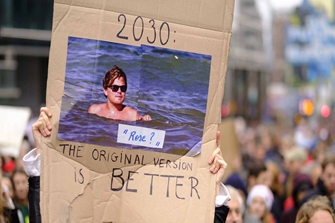
Wang Peng: Climate change and the G20
Climate change has become a common challenge for mankind. G20 member countries, who account for more than 85 percent of global GDP and 75 percent of greenhouse gas emissions, have the responsibility to make a greater contribution on this issue.
2018-12-04 -
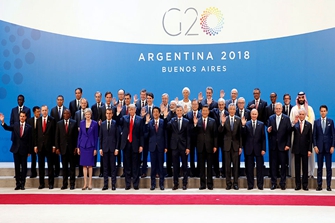
Xi's G20 speech sheds new lights on future global governance
Perhaps all eyes are looking at the 13th summit of the Group of 20 (G20) in Buenos Aires, where world economies are discussing the future of the global development, not to mention there will also be a high-stakes meeting between Chinese President Xi Jinping and his U.S. counterpart Donald Trump, as well as the signing of the U.S.-Mexico-Canada Agreement (USMCA).
2018-12-03 -
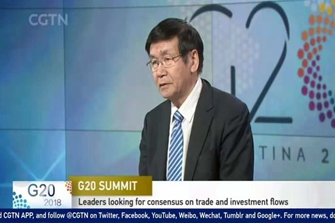
Will this year's G20 promote more cohesive global economic cooperation?
Ten years ago, the first G20 summit was convened to deal with the global financial crisis. A decade on, with the rising of populism and protectionism, will this year's G20 gathering promote more cohesive global economic cooperation?
2018-12-03 -
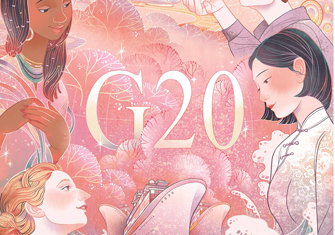
Trade, global prosperity high on G20 agenda
The focus of the G20 Leaders’ Summit, which will be held on Friday and Saturday in Buenos Aires, the Argentine capital, will be the much-anticipated meeting on the sidelines between President Xi Jinping and his United States counterpart Donald Trump.
2018-11-30 -

Decoding G20: What to expect from the bilateral meetings
Founded in September 1999, the Group of Twenty (G20) aims to discuss policies in relation to the promotion of international financial stability and witnessed its first Leaders Summit in 2008 when the global economy was hit by the worst financial crisis in more than 70 years.
2018-11-29 -

Wang Peng: Unilateralism and Protectionism are wearing-and-tearing the APEC platform
It is a pity that the Asia-Pacific Economic Cooperation (APEC) 2018 in Papua New Guinea (PNG) ended without a formal joint statement for the first time since its birth in 1989 and the “Leaders’ Meeting” upgraded in 1993.
2018-11-23 -
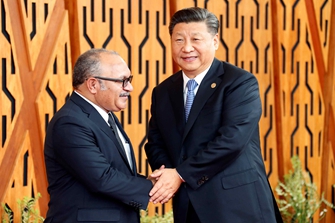
Wang Peng: Creating an Asia-Pacific community of shared future benefits all participants
Chinese President Xi Jinping emphasized the importance of cooperation and openness at the 2018 Asia-Pacific Economic Cooperation (APEC) CEO Summit in Port Moresby, Papua New Guinea on Saturday.
2018-11-20 -
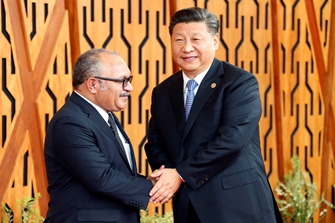
Wang Peng: Creating an Asia-Pacific community of shared future benefits all participants
Chinese President Xi Jinping emphasized the importance of cooperation and openness at the 2018 Asia-Pacific Economic Cooperation (APEC) CEO Summit in Port Moresby, Papua New Guinea on Saturday.
2018-11-20 -
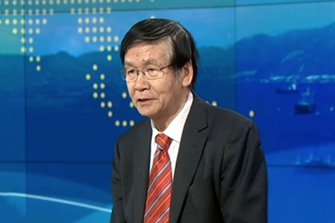
Promoting inclusive growth
CGTN was joined in studio by Mr. Liu Zhiqin, senior fellow at the Chongyang Institute for Financial Studies at the Renmin University of China. He said Pence is setting a fire while China is extinguishing the fire.
2018-11-19 -
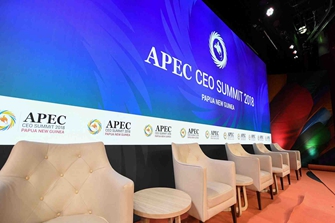
Chen Chenchen: Inclusive growth a lightning rod against Asia-Pacific uncertainties
The leaders, ministers, and officials of the APEC member economies are gathering in Port Moresby, capital of Papua New Guinea this week, aiming to provide policy stimulus for Asia-Pacific trade and development.
2018-11-15 -
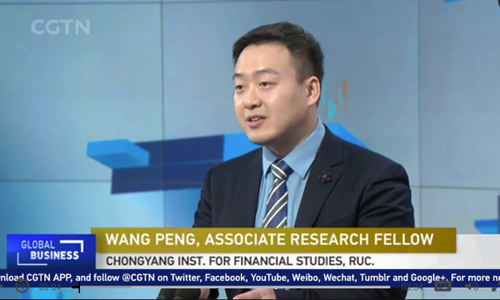
Economic cooperation the flagship outcome for China-ASEAN relations
During the past 15 years, China has enjoyed great relations with ASEAN countries in many fields, where economic cooperation is the flagship outcome, according to Wang Peng, an associate research fellow at the Chongyang Institute for Financial Studies at Renmin University of China.
2018-11-14 -

China seeks global cooperation for the sake of human well-being
The trade conflict between China and the US have been a preoccupation not only in both countries but also the wider world. It has already had damaging impacts on the global economy. On Tuesday, Chinese Premier Li Keqiang said that the ongoing trade disputes with the US remain an "outstanding problem," but he hoped that negotiations will be balanced and mutually beneficial.
2018-11-14 -
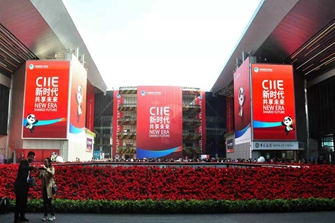
Guan Zhaoyu: World is looking forward to the 2nd CIIE already
Yesterday, the first China International Import Expo (CIIE), a dazzling expo that lasted six days, successfully wrapped up in Shanghai. It is reported that 3617 companies from 151 countries and regions participated in the event. According to primary data, over 570 goods, technologies or service products made their debut at the expo and it attracted 3600 foreign buyers from 72 countries and regions. The value of prospective deals reached 57.8 billion US dollars, of which deals made with the Belt
2018-11-13 -
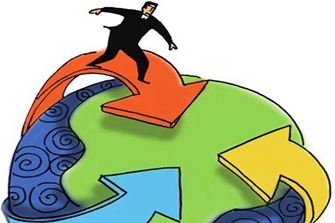
Danilo Türk: Contours of a new international economic order
The first China International Import Expo (CIIE) that successfully concluded on November 10 in Shanghai presents China as the world's most promising market for imports of goods and services in the decades to come. Moreover, this prospect is opening the way to imaginative ideas that will broaden the horizons of international economic cooperation.
2018-11-13 -
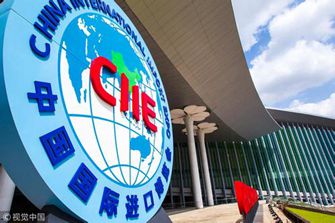
Wang Yiwei: China's import expo offers new prop to BRI construction
The first China International Import Expo starts to count down as it opens tomorrow with Chinese President Xi Jinping delivering remarks at the opening ceremony. Over 1,000 companies from 58 Belt and Road (BRI) countries will participate in the event to seek ways to achieve a more open and inclusive vision of world trade.
2018-11-06 -
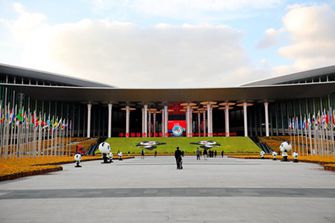
China to share market with the world
China's trade policy is shifting from excessive reliance on exports to a new emphasis on imports as the country finds new ways to stimulate consumption, a pillar of the domestic economy, experts said on Sunday.
2018-11-04 -
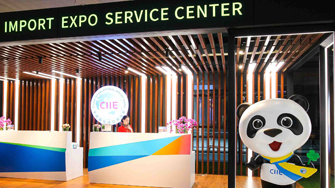
Guan Zhaoyu: The global significance of China’s expanding imports
The upcoming China International Import Expo (CIIE) starting on November in Shanghai will offer a historic opportunity for companies from all over the world to access China's vast market. Since China is the world's second largest importer and consumer market, the relationship between China's import and the development of the world economy becomes self-evident.
2018-11-02 -
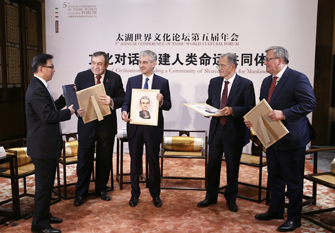
Insights given on building community with shared future for mankind
Editor's Note: On the sidelines of the Taihu World Cultural Forum in Beijing last week, China Daily's Publisher and Editor-in-Chief Zhou Shuchun hosted a cultural dialogue between prominent international political figures at the Palace Museum. They discussed global challenges and shared their views and insights about possible solutions.
2018-10-22 -
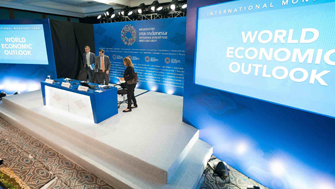
Liu Zhiqin: The politicization of IMF is dangerous
Since the establishment of International Monetary Fund (IMF), it has been the main pillar in international economy. Its most important function is to provide necessary financial aid or loans to weaker economies, mainly in developing countries to support various projects. Most of these loans have played positive roles in favor of the receiving nations.
2018-10-10 -
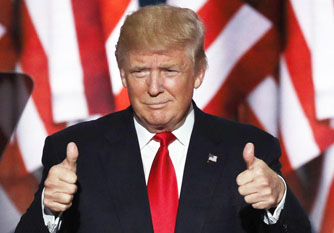
Zhao Minghao: How Trumpism will damage global order
US President Donald Trump's address at the 73rd UN General Assembly (UNGA) has shocked the world again. Trump put it bluntly, "We reject the ideology of globalism and we embrace the doctrine of patriotism." But UN Secretary General Antonio Guterres once said that multilateralism was more vital than ever to tackling dramatic global challenges. French President Emmanuel Macron also addressed the assembly and warned without multilateralism global wars would return.
2018-09-28
























































































 京公网安备 11010802037854号
京公网安备 11010802037854号





